As we sat on the edge of a boat docked on the west side of downtown Toronto, Noah Shebib stares into the horizon in silence. “I rarely buy myself things to celebrate my success. This watch, chain and ring are from Drake. This boat was the first thing I bought myself after my dad died.” He goes quiet again.
Commonly known as “40”, Noah rarely stopped to smell his flowers in his 43 years on this Earth. Over the course of close to two decades, he worked endless nights in pursuit of success and creative heights, sometimes putting himself in the hospital from the lack of self-care and rest. Him and his brothers at OVO quite literally changed Canada’s credibility in the music space with “more slaps than the Beatles”, as “The Boy” so eloquently put it.

The larger than life success they have amassed is out of an artists wildest dreams and nightmares. Too aware of his privilege, divine timing and the sheer ambition and skill of his creative partner Aubrey Graham, he contemplates the shame of capitalist reward in today’s world of grief and absurdist juxtapositions. In the last year alone, his crew faced an attempted character assassination for the hip-hop history books. In the span of the few months before that, he lost his father, Canadian director and legend Donald Shebib and his mentor / teacher Les Bateman. The public pressure and personal loss would break the strongest of hearts. But Noah is not your average guy. He came from a long line of artistry in Canadian history that was fulfilled through the destiny of his artistic journey. His maternal grandfather, Mavor Moore, Canadian writer, producer, actor and professor was the son of Dora Mavor Moore. Canada’s most prestigious theater award is in her namesake. Mavor taught Noah how to play piano. We owe his string of hits and melodies to this lineage. He has defied the odds over and over again as a producer, brother, son and business man. Noah sits in front of me overwhelmed by responsibility as the sun blazes down on him. “Really though, I bought this boat for the apocalypse,” he says “I’ll get us all out of here when the time comes.” We laugh in unison then go quiet yet again. Real shit.
Am I missin’ something’ that’s more important to find?
Like healin’ my soul, like family time
Is there more to life than just when I’m feelin’ alive?
Is there more?
– Drake, “Is There More”

On Identity
Being Canadian is like identity purgatory. On one hand, you are told to embrace your heritage – that in the mourning of your motherland, there is a mirage of belonging on stolen land. The European conquest of this soil is on full display laying the foundation for the nations lived experience of upfront yet subtle racism and cultural erasure. There is a constant state of wondering where you will land, where you belong and where you are headed. It forces you to disengage, float through the experience as a viewer behind the glass. Isolation is a common word that comes up when Noah and I talk, a feeling we’ve both carried differently.
Noah “40” Shebib: My priority was never celebrity. I was around the arts from childhood. I didn’t want anything to do with that shit. The only reason I engage in celebrity is to do my philanthropic work, quietly. I would rather let the music talk than be a celebrity.…. I take that back a little, I do have a lot to say too.
NARCY: Is that why you are in the studio all day?
40: There’s a form of erasure with success and that is not to be self-indulgent. You sacrifice personal freedoms for public consumption and I wasn’t down for all that. I have received so much from the work I’ve put in, of course. In celebrity, a person can lose who they really are and I never wanted that. I wanted to be myself and fulfill my role. I’m not worried about credit at this point, I just want to execute everything I do at a high level. I reap the benefit of Drake carrying the burden of celebrity. Because of my proximity to him, the benefit of his sacrifices, albeit those come with incredible perks. So, yeah, there’s that guilt again haha.
NARCY: Extremely high level. Sativa level. Tear the roof off level. Success and internal guilt.
40: Yeah.. What a blessing… and a curse.

NARCY: What do you think it is about Canada that births phenoms?
40: Isolation. Our proximity to America and our geography. We are isolated. If you want to compete you have to be better than good here. You have to be excellent, and that is what we did with precision.
The third hidden hand of Canada is the most deceptive. The deep seeded colonial history on unceded territory and the genocide it brought with it, the violent destruction of indigenous culture and nation, the bodies in mass graves uncovered over time turned into public apologies to appease the dark truths of nation state building. After all, what is a Canadian conversation without a sorry, eh? All these realities are hard to accept, let alone exist, free of complicity. The absurdity is a reality we can’t ignore in North America. A suspending of truth in exchange for a falsifiable pursuit of nationalistic strength and economic growth. Dollar dollar bill y’all.
Just imagine with me for a second, if when the British and French arrived in Kanata, iPhones reigned supreme. What would we have seen on our collective timelines? Would it look like what we are seeing now on our social media apps or worse? Would we be paralyzed by its viciousness, deafened by the vitriol of racialism? Would it have been swept under the rug of European supremacy and ignored until it became unbearable? This is why the last two years of witnessing impunity and honestly, ambivalence over the lives of families in Gaza on our timelines has frozen us in our path.
A lot of musicians, visual artists, critical thinkers and creatives in our collective circles didn’t know what to do. We signed lists, we protested, we wept, we built alliances, we raised money and most of all, we scrambled. From the boardrooms to the studio, from the underground to the biggest artists in the world, we all had to take a long look in the mirror and be honest with ourselves. (Well, maybe not everyone—ahem, DJ Khaled). How can we exist with this happening? We love to call it cognitive dissonance but I like to call it what it is. Complicity. Our juxtapositions of privilege and impunity is too much. Palestine has changed us all. Back to grief, again. Nothing was the same.
Then a woman said, Speak to us of Joy and Sorrow.
And he answered:
Your joy is your sorrow unmasked.
And the selfsame well from which your laughter rises was oftentimes filled with your tears.
– Kahlil Gibran, “On Joy and Sorrow”

On Grief
40 spent the majority of 2024 processing loss. He spent a lot of time in further isolation, changing his life. He downsized his personal life and moved back into the city, leaving that infamous “house by the lake” Drake immortalized on “Sacrifices” off More Life. “My apartment is bare, I’m still slowly transitioning into this space. All my clothes are in storage.”, he says while getting his hair cut in his living room. “I’m not complaining I mean, how can I?” He retorts in guilt only an Arab man carries around with him. His infamous Murakami piano sits opposite a Retina painting, relics from his recent trip to Lebanon are all over the place. With a view of the city, you can tell Noah is back to his city roots after years of grinding away at the landscape of music. “I missed the city” he says looking out his window.
Later in the day, I found myself sitting across from him at SOTA, the brainchild studio of most of the OVO output. After a half-day shoot around Toronto, we kicked everyone out the room to catch our breath. I didn’t know how to address the ghosts we both have around us. I’m just not good with death. We both were processing grief for different personal and cultural reasons. There was a comfort in knowing that, though we exist on the polar extremities of music mountain, we met halfway with a similar spiritual question: What’s next?

NARCY: I want to first acknowledge those who are not in the physical with us. Your father and Les. The Palestinian children we have witnessed perish. I think it’s’ important we take a moment to think about them all.
We pause again, in silence. I burn my pocket Palo Santo.
40: The grief was insurmountable. There was nothing else I really could do…
NARCY: What do you mean?
40: I was so distraught, the images, the videos from Gaza. I started watching it with my father then he died on November 5th. I spent that first month with him watching it then he left us. My world crumbled in a lot of ways, I couldn’t do anything. I had a lot to work through to understand how to move forward comfortably and ethically. Then I met Nemahsis at a friend’s dinner and she was saying “I’m out here alone”. It just hit me, this is it. I told her the door is open for you here and the rest is history, or her story.
NARCY: In a way, we talk about needing new tools outside of the old ways of protesting or fighting the flood of injustice around us. Nemah, in a way, is a part of that change. Of all the artists that came out the diaspora, I feel like she’s the one, she’s the change.
40: So proud of her, she has the vision. And its really all I could do for community. My strength is music and the spaces I’ve opened up, it was a necessity to work on her album culturally.
NARCY: Early on, you and Drake signed the ceasefire list, tell me how that came about?
40: A friend came to me and asked me if I want to sign and I said, of course. He asked if Drake would and I went to talk to him and the team. That simple really.
NARCY: Do you think your stance on Palestine created any friction for you personally in your career?
40: No, I protect myself in all spaces very well. That was a life long journey to learn how. I was mindful of that. I’m also mindful that other people take great risks standing up against the occupation, and that is so inspiring to witness. I only work with one person, really. There is no one who can come in and tell us what to think and do. That is my privilege, to be vocal. I am proud of that and will do that to the death.
NARCY: You built your own ship, Noah. Pun intended.
40: This guy is good with words eh?!!!

NARCY: There’s also the “beef”….
40: What do you want me to say about that? None of those artists said shit about the state of the world. At a time like this, everything else is just noise.
NARCY: I feel like it brought up a lot for me as a person who teaches this and is a practitioner and visitor in the culture. It reeks of American exceptionalism and the erasure of cultural identity in Canada. How a colonial entity like America, within an industrialized arts business model, can finger point and tear down Canadian Black identity when it suits it. How Zionist-run systems of control around the arts can serve you an untrue narrative through self-righteous, organized, marketing campaigns. How the industry manufactures consent. I mean, obviously, I’m seeing it through the lens of the genocide in Gaza and how everything is falsifiable and the whole game is rigged. But imperialism is intrinsically tied to everything we do. Not that anyone is perfect, I mean, I’m a consumer too. Audiences were used on some gladiator shit to build up careers. That there is no justice really, nor is their perfection. There is only responsibility and that is a lost art. It’s just all so gross.
40: The professor speaks….
Those that seem clearest are often the most treacherous.
– Amin Maalouf, “In The Name of Identity”
On Justice
Building the arc of Toronto’s story is not a ship to sail without responsibility. When navigating the waters of fame and success, many around you will have trouble swimming up the wave you create. Canadian hip-hop is so formative in many of our experiences of Canada’s cities as any major American or European metropolis you encounter. The Jamaican, the East African, the Arab, the Indigenous, the diversity of our identity is really what it means to be a Canadian I guess. Its not the public narrative, its the street that dictates who we are now. When you bring a credibility to a city that’s batting at such a high average in the game, it’s hard to not create a vacuum, or create an erasure. “I don’t know how the city has changed, I have to admit I have been out of touch. Just working with my head down.” Noah says whipping around a Denali truck the size of Mississauga. I cheekily named it Ben Ali.

The irony in creating a city’s sound while not experiencing it is not passed us. I look out the window of a Toronto now different than it was when OVO first started bubbling. Rising rent, gentrified blocks…Toronto, while vibrant, multi-cultural and exciting has a sense of great self-denial, back to that Canadian dissonance. It isn’t something Noah doesn’t think about. This is why he built the Justice Fund alongside his sister Suzanna Shebib and his partner-in-non-crime Yonis Hassan. The intention behind the fund was not to create yet another philanthropic celebrity-led money maker, but to invest in the already existing infrastructures that help youth out of social and racially motivated hierarchical systems.
40: You know, the accolades and the awards, those are all based in a racially biased system so they never really meant that much to me. I am an eternal student to Toronto. All I ever wanted was to take my teachers lessons and turn them into something larger than life. From Les and Gadget in the studio, to Saukrates on the MPC.
NARCY: Some artists are not political. A huge pop artist won’t move the needle really if they don’t really care.
40: We’ve never made political music or music about geopolitics. We always been an escape from those things. But there is a conversation to be had about responsibility of artists. How are you going to tell me how to make my art? He’s always found a place to make music about escape and a connection. Everybody needs music at a time of despair and that’s what we serve. I love that that’s what we represent artistically. There are other artists who speak on the world and I love that music too, of course.
NARCY: Your proximity to the team can reflect your humanity. It’s not political to me only, it’s human.
40: In the music industry, we’re essentially packaging, exploiting people and culture for money in the form of music. So, how do you give back? I am only responsible for myself and what I have done so how do I channel my blessings and share them? A lot of people start with public programming, and that’s a big lift for me. I can’t just show up and take space from people who have been doing community work for decades. I didn’t want to just show up as a celebrity, I wanted to show up as Noah. I wanted to leverage my soft global power and draw attention and get money to fund the existing community organizations. The Justice Fund was to stream line those dollars into the right hands. Even in these spaces of philanthropy there is a lot of grifting, so I wanted to change that with Yonis as much as we can.

Yonis Hassan, CEO of the now-deceased Justice Fund, sits across me on Noah’s balcony. Behind us is the iconic CN tower, looming over the city as it looks down on the large territory it holds. “I think OVO gave Toronto an international credibility. Noah will play it down but I won’t,” he says to me in between sips of espresso. Noah walks out handing me a cortado he made on his machine. “Oh oh, NARCY and Yonis in talks!” We chuckle. “That’s my guy DOCTOR Noah ‘40’ Shebib, the social activist, musical genius”.
NARCY: How did you reconcile Noah’s public image and tap into his personal journey of wanting to help youth? How did you help rebuild on something so big?
Yonis Hassan: I think this massive brand that Noah, Oliver and Drake built (OVO) is hard to wrap your head around as a Toronto resident. They contribute to tourism, it’s singly handedly the biggest creative export, in my humble opinion. For Noah, I think, he was never distracted by that rapid growth, he was always rooted in his lived experience in this city.
NARCY: I met Noah around that time, through Suzanna (Noah’s sister). The first time I interviewed him was when Justice Fund launched. Tell me about the early days and difficulties in the city you had to navigate to push through and put the money in the right places.
Yonis: We launched in the beginning of the pandemic and at first we had this grand vision of what role we can play internationally and domestically, focused on justice. The first challenge we faced was that Noah was doing this alone, it wasn’t an OVO thing. We would walk in places and we didn’t want to be perceived a celebrity foundation, a marketing initiative or a vanity project. We are not virtue signaling, we aren’t rooted in self-aggrandizing vanity. We recognize that the youth in Toronto need social, economic, political change. How do we create the most impactful pathways to economic mobility?
NARCY: I have two questions to that question. I think, knowing Noah as a friend, part of his personal mandate as an artist was to balance that learned patriarchy through his personal journey for identity, our nations and possible change. Do you think that the problem of youth poverty, marginalization, criminalization—is it too big to change? How did you both choose what do focus on?
Yonis: It’s a tidal wave. I’m not an artist, I don’t know the pressures and guilt that Noah might feel. I feel guilt around how the world works, the rooms that make those decisions. It’s devastatingly overwhelming. When corporations make proclamations around change and social justice, is it in their by-laws? No. It’s all symbolic. So for us, we came in not afraid to bite the hand that feeds us. The government or the corporate sector.
NARCY: Why did you chose to focus on legislation?
Yonis: This is how philanthropy should work. You know, nobody asks about this. This is the one sector that transforms and takes risks. This sector has tremendous, credible, knowledgeable leaders who are policed and can’t speak out because it risks them losing funding. I think we came in like outliers. We aren’t afraid to speak around the real issues. How many of us are really empowered and are coming from lived experiences that are linked to these issues in society and really give a fuck about how to change the environment around us?
NARCY: What is the biggest issue facing kids in Toronto and the world?

Yonis: Apathy. You’re so desensitized. This is the first generation to go through wave after wave of unprecedented crisis. The first generation desensitized to violence because they see it on social media on a daily basis. They don’t know how to react to things. More importantly, it’s a generation that put their faith in certain people and been let down. The spirit is brittle and can be crushed when you worry about rent, your family, living while the world feeds you polar opposites.
NARCY: What was your biggest success at the Justice Fund?
Yonis: I think the legislative change around the dispersement quota, the amount of money that foundations have to give annually to charities. We took it from 3.5% in Canada to 5%. Not a crazy amount but still significant. It created $1.6 billion more to charities.
NARCY: What about what you didn’t accomplish?
Yonis: So many things, man. I failed more times than I can remember. Whether its policy changes, funding moderations. I couldn’t get them over the line. Then there’s the cultural center we wanted to build. We wanted to build a 40,000 square foot cultural, justice center. For performances, events, for organizations to headquarter in. Unfortunately, I ran into a behemoth of politicians and people who did not want to see it happen.
Since our conversation, The Justice Fund closed and Yonis started focusing on Active Cause which “exists to reimagine philanthropy as a force for cultural power and systemic change—led by the voices of creators, fueled by strategic capital, and built for a new generation.” Taking his learned lessons from Justice Fund, Yonis is now going around the world leveraging what they built into something bigger.
“Patriarchy demands of men that they become and remain emotional cripples. Since it is a system that denies men full access to their freedom of will, it is difficult for any man of any class to rebel against patriarchy, to be disloyal to the patriarchal parent, be that parent female or male.”
– Bell Hooks, “The Will To Change”

On Family
40 feels like a nucleus around his people. He surrounds himself and has lent a helping hand to many that know him.
Jad El Khoury, a Lebanese transplant to Toronto, is sitting in the B Room at SOTA. “I’m working on beats all day, mixing records for people” he says, sitting across a console of a rappers’ dreams. “Noah inspires my work ethic alot. How can I not do my best? People would kill for this position. 40 found Jad looking for interns at Metalworks studios, where him and Drake crafted mega-bangers that touched the world. He was one of four students he got forwarded. “It was a no-brainer, he was Lebanese, he was driven and unique. He had a vision” says Noah about Jad. “Thats’ the big brother I never had. I went from studying to this studio in less than a year. I’ve worked with the best in the game. What a dream come true,” says Jad, softly. Noah went back to Lebanon for the first time, with Jad.

Part of this exercise for me was to give Noah his flowers. I am not a journalist, I’m a writer for myself and others. I wanted to spend days with Noah surrounded by his people, to really understand his personal impact on people. Earlier that day, we visited The Organic Press in Kensington Market, a juice spot Noah quietly supported in its infancy. It is run by his long time Persian-Canadian friend Yashar Oghabi. “Noah is a king to many, rightfully so.” He says as we sip huge jars of watermelon juice in the blazing summer sun. “To me, he’s a brother.. I’ve known him since 7th grade, so to witness his path and he hasn’t changed much. He’s an eternal student. I witnessed him go through the struggles, emotional, physical. He’s deep, man. Even the music has a depth, an underwater depth. He’s been there for me through it all.”
I set up a dinner at Louf, a Palestinian restaurant under the tutelage and cooking of the great Bethlehem born Palestinian chef Fadi Kattan. It was important for me to put our money where our mouth is a really just support directly within the community. We sit at dinner with Jad, Nemahsis, Mr. Morgan, Noel Cadastre, Majid Al-Maskati of Majid Jordan, Cheb Moha and Taher Hasoon. I stepped away after a long day with the crew to just, witness. Every one was talking over traditional Palestinian food, surrounding Noah. I felt what you rarely seen in public around artists who have their finger on the pulse and tempo of the public; community.
“He means the world to me. I love him so much,” says Majid. “He’s a master of so much, and still, he keeps learning. He finds joy in solving things I’d never even imagine—like how to remotely access 700 studio synths at the touch of a button, or resurrecting a corrupted drive from a 10-year-old computer. Sometimes his work gets so technical that I’m unable to explain it the way he does—but I love how there’s always a new discovery since our last conversation. He’s alive. Does he need to build machines? No. Is it something that brings him joy? Yes. And is it not a blessing to experience the peace and tranquility of knowing what brings us joy? He allows me to witness that. He inspires me to look inward. He knows what I am. He’s a human. He’s my brother.”
“Said like a true R&B mans,” I say back to him.

Noel Cadastre towers over me after dinner as we all join each other outside, fulfilled and full. “Yo NARCY, Thanks for doing this for our brother man. We rarely get to celebrate each other.” Noel is responsible for much of Drake’s output, both producing and engineering for him at home and on the run. “Noah’s my brother right there man. He literally saved my life. I owe him a lot”. I am silenced by the honesty and gratitude.
Then there’s the sister in the room, the songbird and powerhouse that is Nemahsis. In our conversations over time she’s told me how Noah helped her when no one was in her corner. After being dropped from her label, he jumped in an offered her everything she needs to complete her first solo album. It’s a very rare act of selflessness from an artists of his stature. These silent gestures can change a persons’ life.
Back on the boat, he break the silence as I adjust his golden cedar tree and OVO owl pendants. “I don’t wear these as much as I should. Maybe I should.” he says to me. You get the sense that Noah has done a lot of work on himself. Recently returning from his first trip to Beirut ever, closing a four generation displacement loop, his healing journey has been to do what his family couldn’t. His father faced a lot of adversity in the arts industry in Canada despite being an accomplished director. His great grandfather, George Shebib, moved to Nova Scotia in 1910 from Lebanon with a wife and 13 children, one of which is Noah’s grandfather. That patriarchal immigration pattern is all too common in the Arab experience of North America. Our generation is one of the first to actively undo those painful journeys and do shadow work on self.
“Seeing Beirut was life changing. I don’t know where to begin, it’s so layered and so deep. On the surface, I want to retire there and build a studio. That’s the dream really. The irony of it all is the time zone there lines up with Drake’s daily waking schedule Eastern Time Zone. When I wake up at 7am there, he’ll be primed in the studio to record in Toronto. It’s perfect. New beginnings.”
“Inshallah,” I say.
“Inshallah, brother,” he says back to me.

__________________________________________________________________
PRODUCTION CREDITS: Editor-in-Chief Danny Hajjar. Photos Cheb Moha. Cover Design Lillo Bergh. Creative Direction Cheb Moha, Taher Hasoon, and Yassin “NARCY” Alsalman for We Are The Medium. Fashion And Styling Yassin “NARCY” Alsalman and Taher Hasoon for Shabab Intl and MAKTABA. Hair Dwight Murray for Miami Fades. Lighting Director Taher Hasoon. BTS Video Jonathan Varghese. Location The 6. Project Manager Yassin “NARCY” Alsalman for We Are The Medium. Powered by We Are The Medium. Special Thanks Louf, The Organic Press, and Sota Studios.

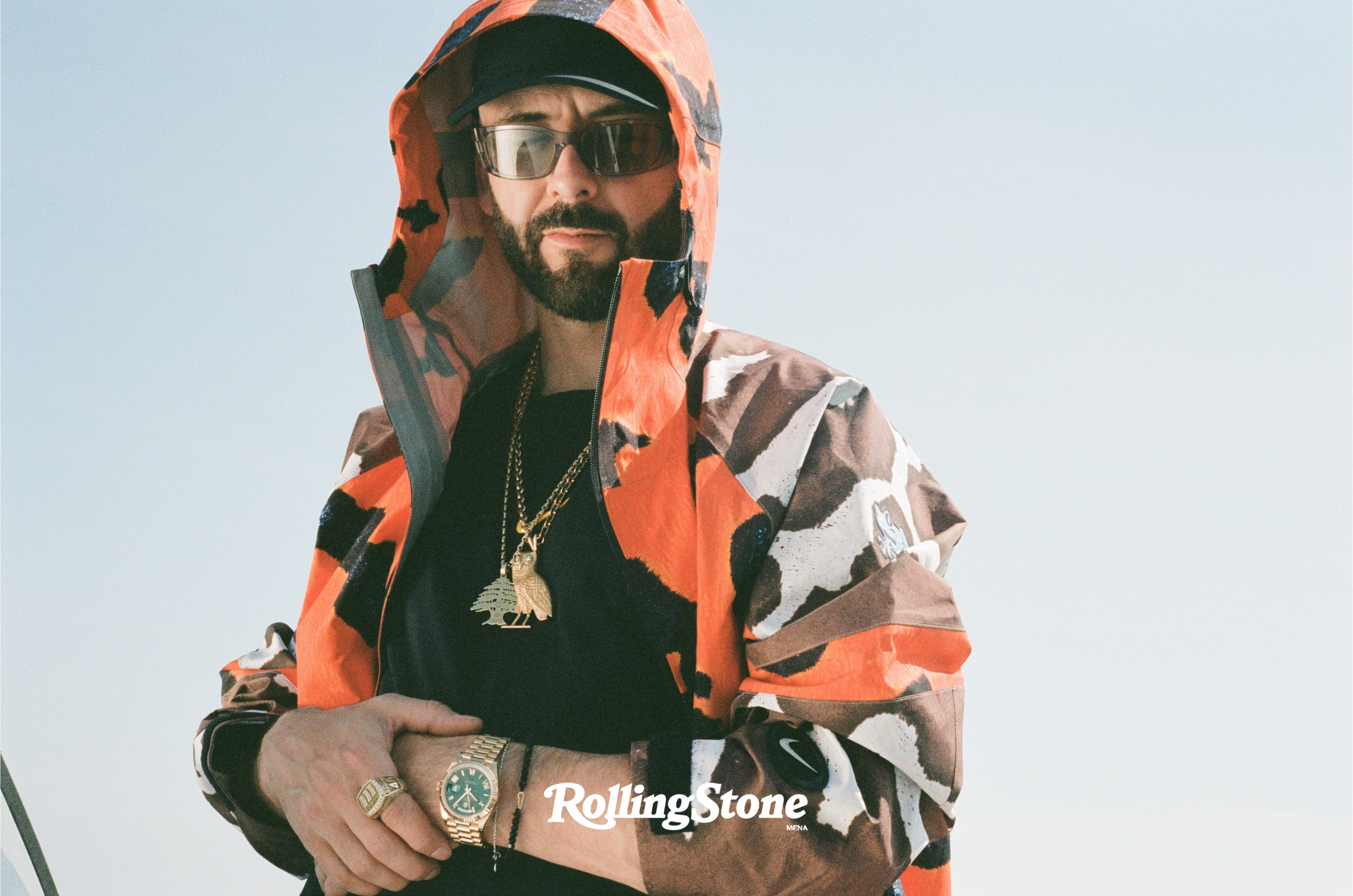
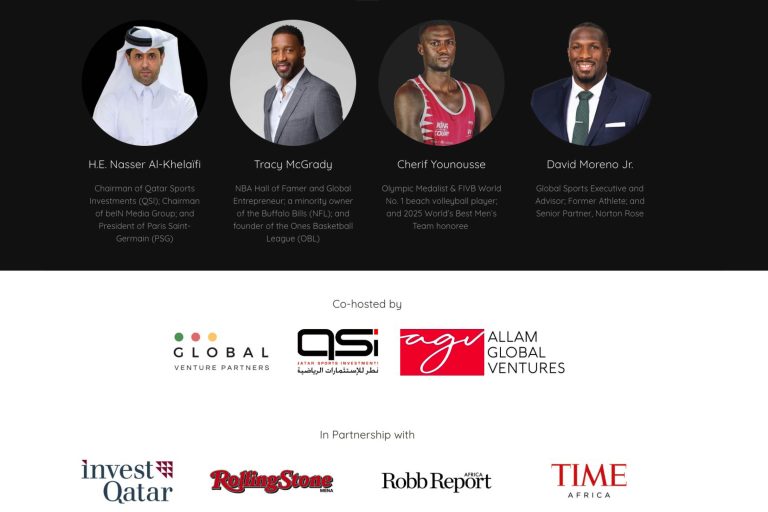
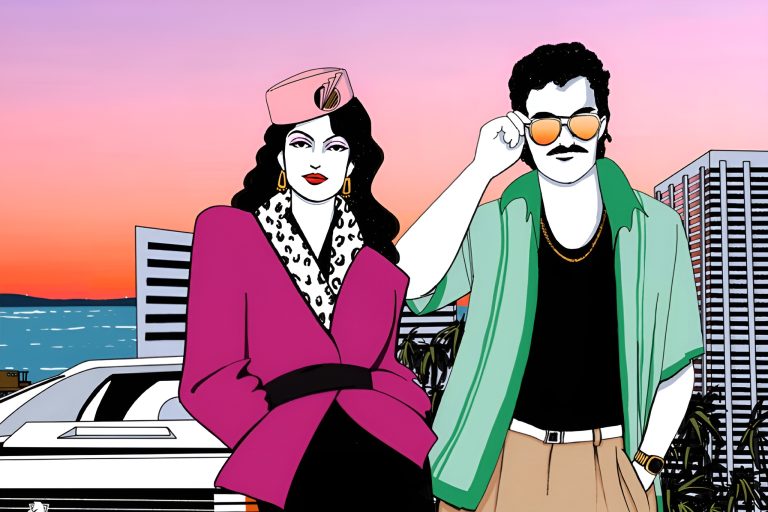
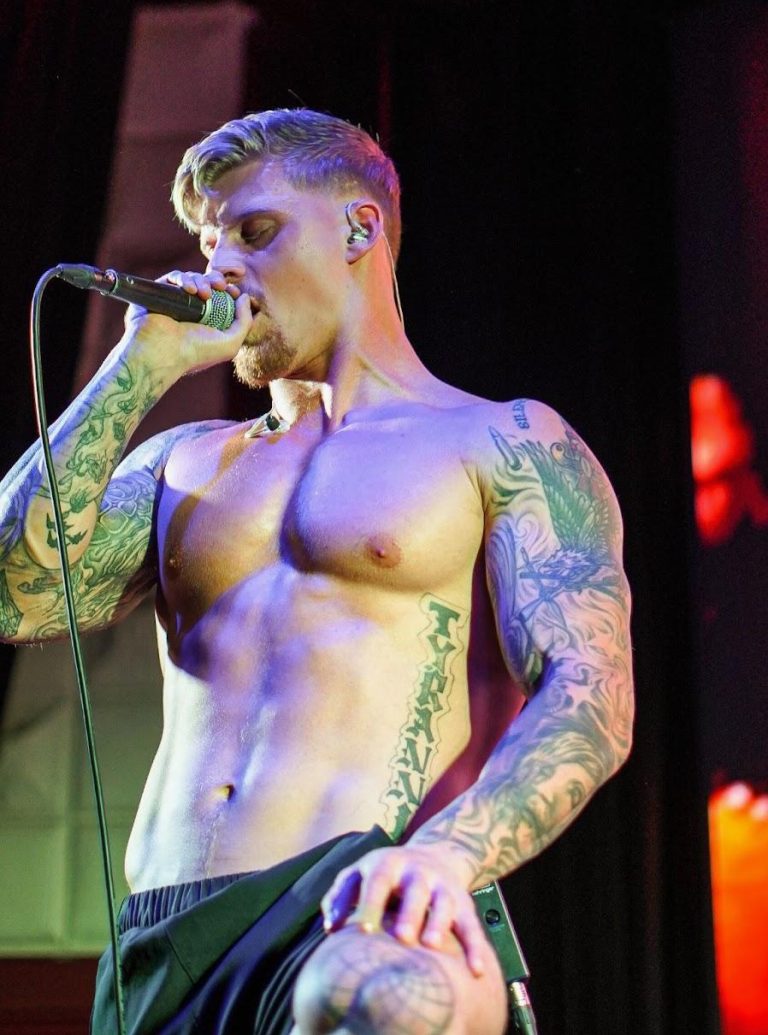
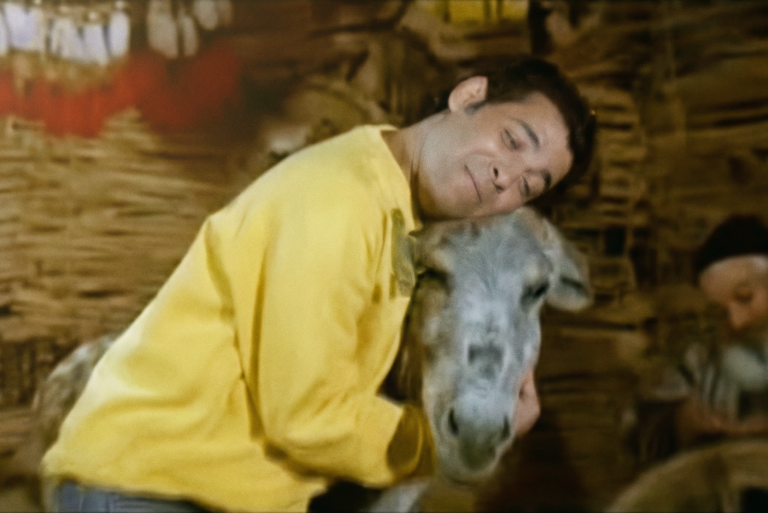
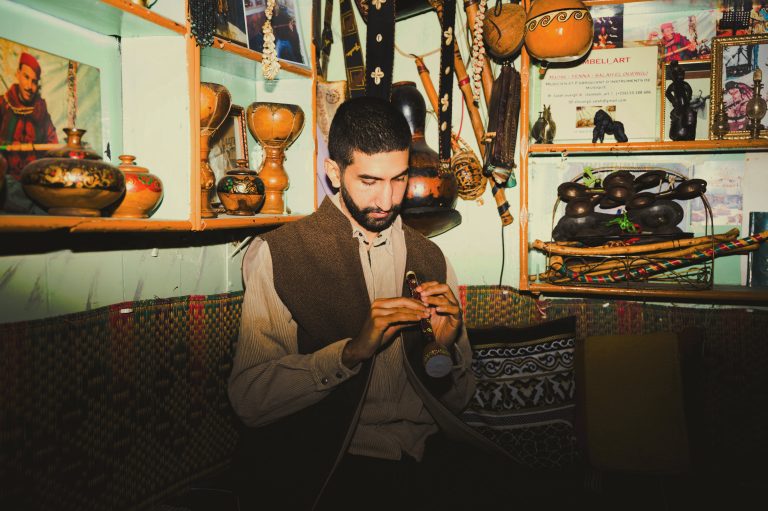



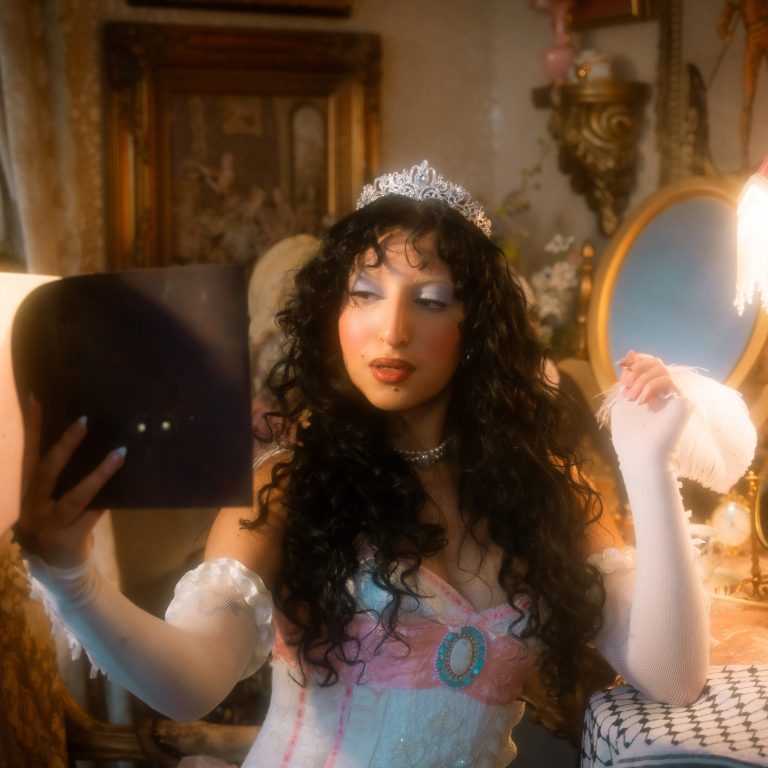
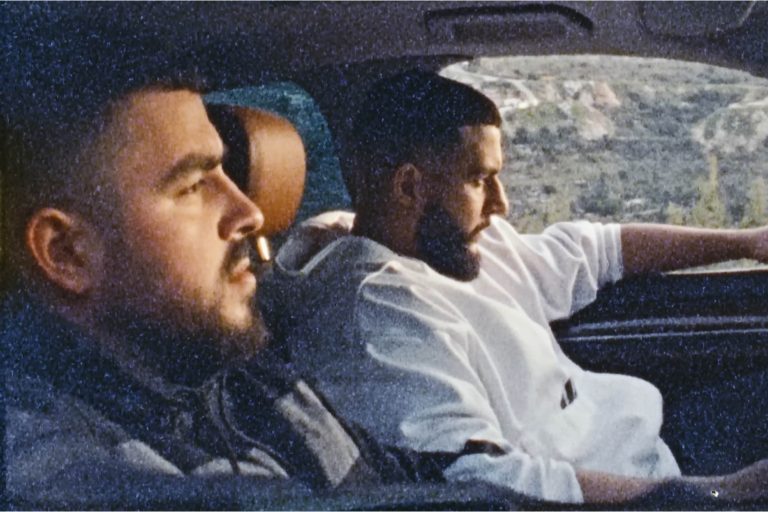
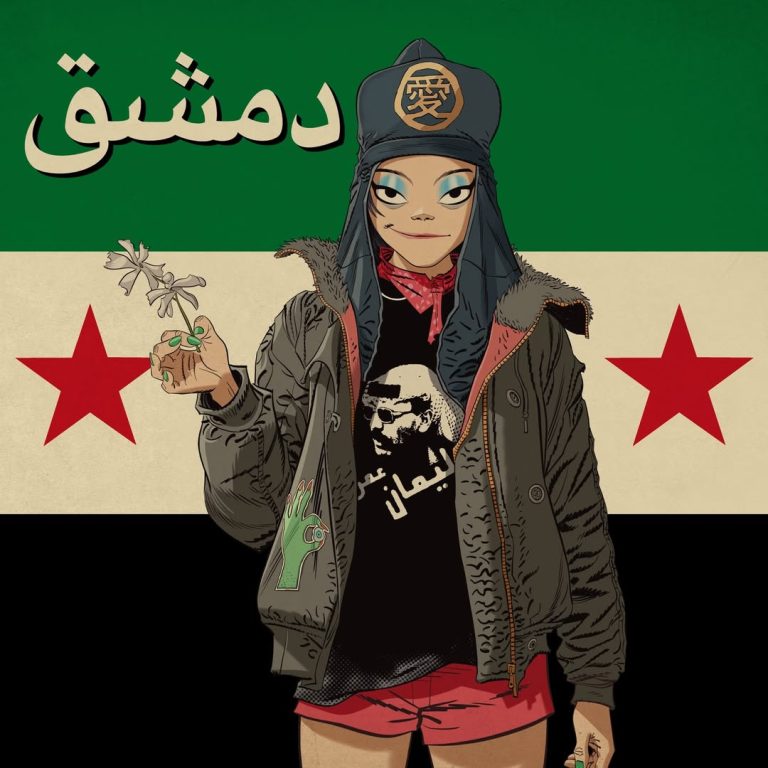

Arab Films Are Reaching The Oscars, But The Industry Is Still Lagging
Four Arab films make the Oscars shortlist this year, marking a historic moment for an Arab cinema still struggling for sovereignty.